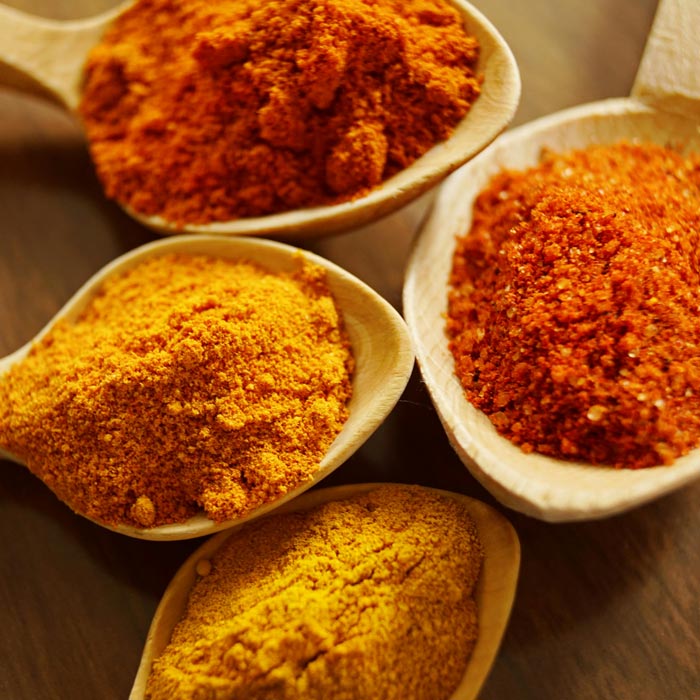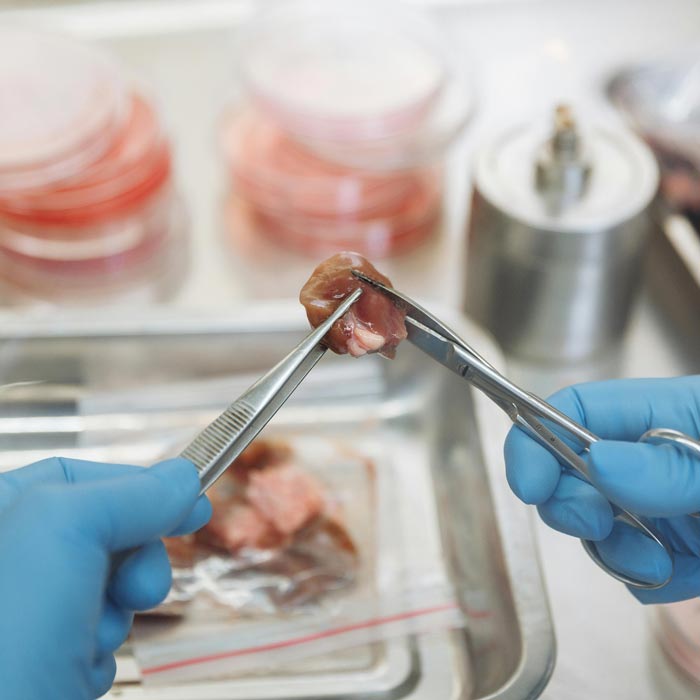Turmeric: Benefits, Uses, Side Effects, and More
Turmeric or Curcuma longa is made from the turmeric root, which is a flowering plant in the ginger family. Turmeric is used as a ground spice and the turmeric root is bright yellow. It is commonly found in Indian, Middle Eastern and Asian cuisine.
Turmeric contains powerful bioactive compounds called curcuminoids, of which curcumin is the best-studied. Curcuminoids are known to have significant health benefits. They reduce pain and inflammation, which is a major factor in aging, disease progression and quality of life.
Takeaways:
- Turmeric contains many bioactive compounds, including curcumin.
- The use of curcumin extract can reduce pain, stiffness, and inflammation associated with osteoarthritis in the knee.
- Curcumin improves the quality of life and reduces discomfort for people with ulcerative colitis.
- Curcumin improves blood flow and oxygenation in the brain which may help to mitigate age-related cognitive decline.
- It has been proven that curcumin is more effective and better tolerated than other pain medications.
- Curcumin can help reduce muscle soreness and damage after exercise, without compromising a natural, transient, and beneficial exercise-induced inflammation response.
- Curcumin can help reduce fasting blood glucose and balance hormone levels for those with PCOS.
Curcumin relieves osteoarthritis symptoms
Knee osteoarthritis is the most common cause of adult disability and pain. It affects over 240 millions people around the world and causes chronic pain, stiffness, and inflammation.
In a high-quality randomized controlled study, those who took 500mg Curcuma each day showed greater improvements in stiffness, pain and mobility than those who were given a placebo. These results show that supplements for osteoarthritis containing this compound can alleviate joint pain and improve overall joint health.
These findings are supported by other studies. A randomized controlled study found that both the low dose (124mg/day) and the high dose (186mg/day), of bio-optimized curcuma longa, for three months showed similar improvement in pain as well as an OA biomarker – Coll2-1 (sColl2-1). This biomarker has been linked to cartilage degradation and osteoarthritis.
Curcumin reduces inflammation markers and gastrointestinal symptoms
Both inflammatory bowel disease are associated with chronic diarrhea, pain, poor quality of life and elevated inflammatory markers.
In one study, those with UC who combined drug therapy and curcumin at a dosage of 1500mg daily for eight weeks experienced improvements in inflammatory markers (CRP, ESR). The patients also scored higher on questionnaires about their disease and had a better quality of life than those who were on drug therapy and placebo.
Curcumin has neuroprotective properties
In the aging process there is often a reduction in blood flow and oxygenation, which can lead to a decline in cognition. In a randomized controlled trial, turmeric root extract increased blood flow and oxygenation in the pre-frontal cortex compared with placebo during exercise.
These findings are also supported by other research. In a study of older community-dwellers, those who took 1500mg curcumin every day for 12 months showed significantly less cognitive decline compared to those taking a placebo.
Curcumin is more effective than pain medications
Paracetamol, also known as acetometaphin (a generic name), is an over-the counter pain reliever and fever reducer. Turmeric may be more effective than this drug in treating osteoarthritis symptoms.
After six weeks, a small 2021 randomised trial found that those who took 500mg of turmeric root extract twice daily had more significant improvement in pain, stiffness and mobility and also the inflammatory markers TNF-a and CRP than those who took 650mg of paracetamol three times daily.
Ibuprofen is another common treatment for osteoarthritis. It’s a non-steroid, anti-inflammatory drug that has long-term effects. In a study, 1500mg of curcumin and 1200mg of ibuprofen were compared daily. Both groups reported similar pain relief. However, the curcumin group had significantly less stomach upset.
Similar findings were reported in a randomized controlled study. Researchers found that those with OA taking 500mg of curcumin three times daily had similar pain relief to those who took 50mg of diclofenac twice daily, but with fewer adverse effects. They also reported weight loss and antiulcer benefits.
Curcumin reduces muscle soreness
Some people are concerned that turmeric combined with exercise could cause an inflammatory reaction.
In response to these concerns, one study found that supplementing with 1500mg of curcumin daily did not affect the natural inflammatory response following exercise but did reduce muscle damage and pain. Further research is needed to confirm these results and determine whether long-term supplements have a positive effect on exercisers.
Curcumin reduces the symptoms of PCOS
PCOS, a hormonal disorder that affects mostly women, is linked to increased levels of male testosterone, insulin, blood sugar, weight gain, and infertility. Women who took 500mg of curcumin, three times a day for 12 weeks, had better fasting glucose levels and hormones than those taking a placebo.
Curcuminoids are powerful compounds that have health benefits. Although turmeric is used as a spice in many dishes, curcumin or turmeric extract is necessary to improve the conditions and ailments reported in research. The common dose is 1500mg per day, or 500mg split into three doses daily. There are few side effects and adverse events reported.
Resources
- Phytomedicine: International Journal of Phytotherapy and Phytopharmacology. Effects of curcumin supplementation on blood glucose, insulin resistance and androgens in patients with polycystic ovary syndrome: A randomized double-blind placebo-controlled clinical trial.
- Journal of Dietary Supplements. Effect of Curcumin Supplementation on Exercise-Induced Oxidative Stress, Inflammation, Muscle Damage, and Muscle Soreness.
- Trials. Safety and efficacy of curcumin versus diclofenac in knee osteoarthritis: a randomized open-label parallel-arm study.
- Clinical Interventions in Aging. Efficacy and safety of Curcuma domestica extracts compared with ibuprofen in patients with knee osteoarthritis: a multicenter study.
- Trials. Bioavailable turmeric extract for knee osteoarthritis: a randomized, non-inferiority trial versus paracetamol.





